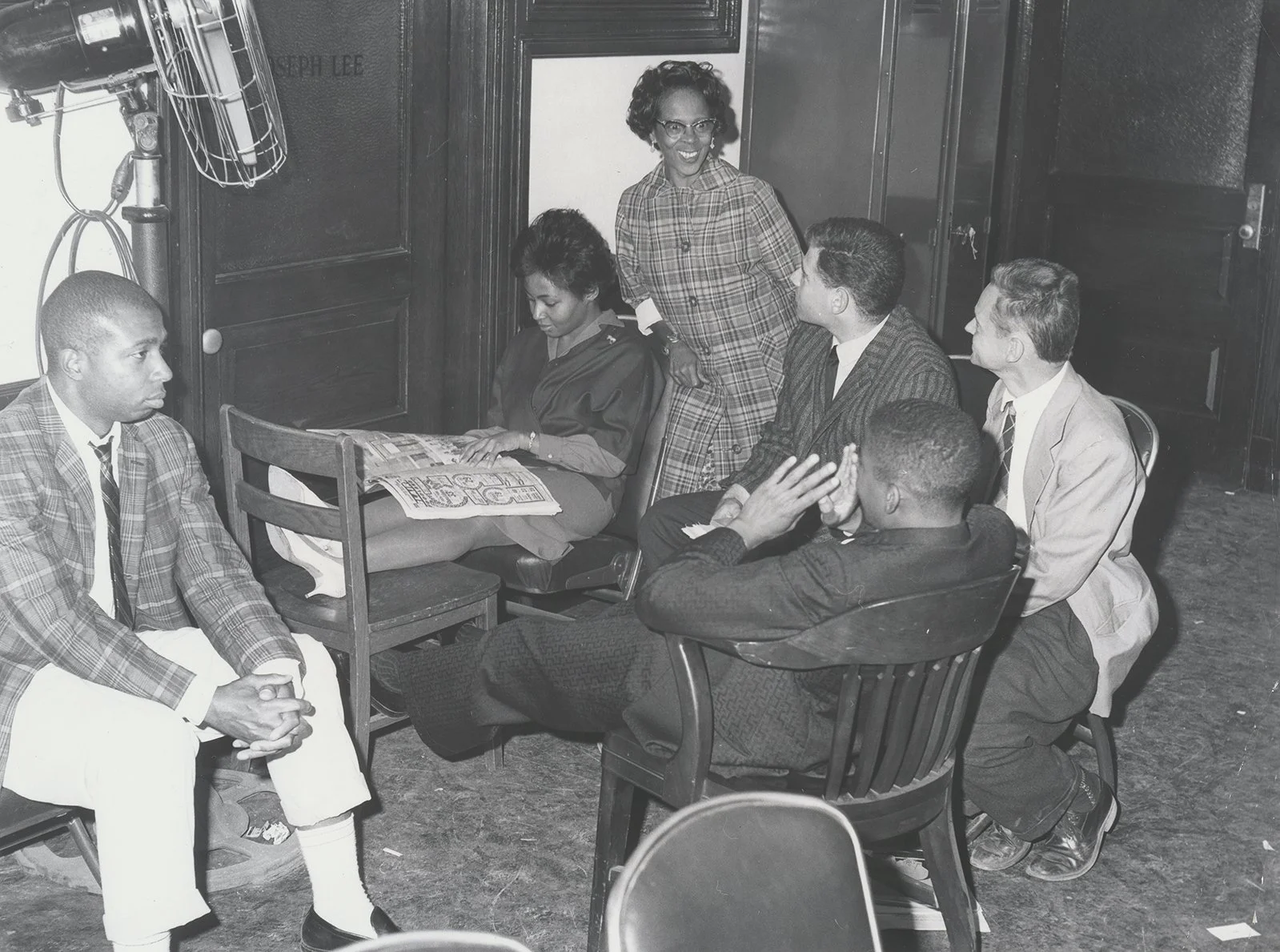About the Boston Desegregation and Busing INITIATIVE
Many positive steps were ordered by the court that increased diversity of teachers and administrators, created partnerships with universities and companies, and created integrated parent councils at each school, et al.
But the violence of rocks thrown at buses and calling racial epithets and fights became part of Boston's reputation nationally and is still with us today. Some of the students and teachers who were at these schools carry trauma with them today.
A committee of 40 people make up the Boston Desegregation and Busing Initiative. It includes community leaders whose leadership reaches back to the 1960's and 1970's, teachers who taught during the 1970's and beyond years when busing was taking place, and "kids on the bus" who were bused back then in the 1970's.
Today the Boston Public Schools are overwhelmingly made up of students of color. There are many innovative programs and effective and committed teachers and administrators. But students are overall not doing well on achievement measures, so much more needs to be done. We hope to contribute people and ideas to join with others to work to further improve our schools.
The Boston Desegregation and Busing Initiative (BDBI) was formed in 2023 to organize forums, exhibits, partnerships, research, and interviews to examine the events in the 1960's, 1970's, 1980's connected to desegregation of the Boston Public Schools and the remedy the Federal Court chose of busing. We want to answer the questions: What happened, Lessons Learned, and What next for the Boston Public Schools.
This was a tumultuous and often disheartening time for our city. Black residents from 1961-1974 organized to get the Boston School Committee to provide equity in funding, building conditions, teacher experience, etc. The Boston School Committee refused, delayed, deflected, and filed court appeals.
On March 14, 1972, 14 adults and 43 children represented by the NAACP and the Center for Law and Education filed the Tallulah Morgan vs. James Hennigan case. On June 21, 1974, Judge Garrity ruled in the plaintiffs favor finding the Boston School Committee had been running a segregated school system. He then ordered desegregation by busing that began in September 1974.
The opposition to busing from Whites divided the city. Division, fights, and violence occurred in and outside of South Boston High School, Charlestown High School, and Hyde Park High School. There were lesser problems in some other high schools. But most schools opened peacefully and stayed that way. The White anti-busing groups mobilized many thousands on their side while Black leaders stood up for their children. Latino parents and Asian parents also joined in the fray.


